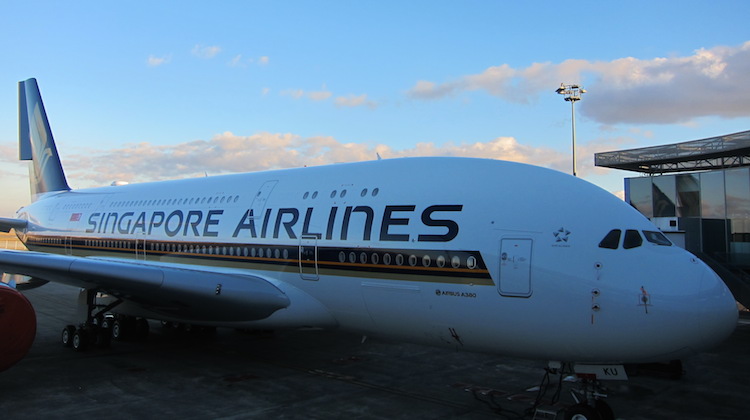
Airbus has maintained its target of between 880 and 890 commercial aircraft deliveries for calendar 2019 amid what chief executive Guillaume Faury says is a robust operating environment.
The company reaffirmed its guidance for aircraft deliveries when announcing financial results for the six months to June 30 2019 on Wednesday (European time).
Faury said industry forecasts showed the fundamentals for the aviation industry remained solid.
However, headwinds included a “complex geopolitical environment”, as well as strong competition in the widebody sector.
“We are increasingly concerned about the rise of protectionism,” Faury said during the Airbus first half presentation.
In terms of the financial results, Airbus reported net income, or net profit, of EUR1.197 billion for the six months to June 30 2019, more than double the EUR496 million in the prior corresponding period.
Airbus said net profit was boosted by a higher earnings before interest and tax (EBIT) in the second quarter, as well as the revaluation of financial instruments and a lower effective tax rate.
For the half, EBIT increased 87 per cent to EUR2.093 billion. And revenues 24 per cent to EUR30.866 billion.
The Airbus commercial aircraft business, which is the biggest of the three business units alongside Airbus Helicopters and Airbus Defence and Space, reported EBIT of EUR2.151 billion for the half, an improvement from EUR773 million in the prior corresponding period.
The lift in EBIT was achieved as Airbus delivered 389 commercial aircraft in the first half of calendar 2019, comprising comprising 21 A220s, 294 A320 family aircraft, 17 A330s, 53 A350s and four A380s. This was 86 more aircraft than the prior half.
“The half-year financial performance mainly reflects the ramp-up in production of A320 family aircraft and transition to the more efficient NEO version, as well as further progress on the A350 financial performance,” Faury said.
“We continue to see good demand for our competitive product portfolio, including the new A321XLR, as shown by the strong market endorsement at June’s Le Bourget airshow.
“The second half of the year in terms of deliveries and in particular free cash flow continues to be challenging.”
In terms of production, Faury said Airbus was maintaining its target of 10 A220s a month coming out of the Mirabel production facility in Canada and four a month from Mobile in the United States by the middle of the next decade.
Meanwhile, the Airbus A320 family production line was “fully booked through 2024” with a backlog of 5,871 aircraft, as the company worked to increase production to a previously announced 63 aircraft a month by the middle of 2021.
“We continue to stabilise the industrial flow and to study potential for further rate increase beyond 2021,” Faury said.
Also, Airbus’s first half results said the ramp up in production of the Airbus Cabin Flex (ACF) version of the A321, which allows airlines to vary the doors and emergency exits based on the desired number of seats, remained challenging.
Further, the airframer said it was studying different options to increase the share of the A321 in current A320 family production capacity”, given the “recent commercial success of the A321 ACF and XLR”.
Airbus booked 88 commercial aircraft orders in the first half of calendar 2019, compared with 206 orders in the prior corresponding half.

At Airbus Helicopters, EBIT rose nine per cent to EUR124 million.
The company said the helicopters division had a “less favourable delivery mix” in the half, which was partially compensated by an increased contribution its services businesses.
Airbus Defence and Space fell to an EBIT loss of EUR15 million for the half, from positive EBIT of EUR382 a year earlier, “mainly reflecting efforts to support ongoing campaigns”.











